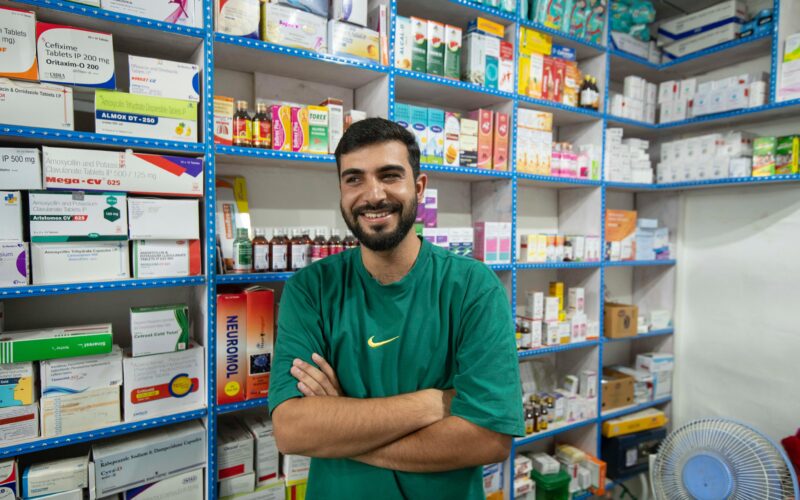Pir Azhar U Din
For decades, access to healthcare in Kashmir’s border villages has been defined by absence—not by choice, but by geography. Kupwara, one of the most remote frontier districts in North Kashmir, often remains cut off during harsh winters due to heavy snowfall, poor road connectivity, and unpredictable weather. In such conditions, reaching even the most basic medical services becomes a matter of life and death.
For residents of villages located along the Line of Control, the nearest hospital or well-equipped medical store can be over 40 kilometers away. In emergencies—whether a child with a high fever, a pregnant woman in labor, or an accident victim—this distance can prove fatal. Families are often undertaking hours-long journeys just to access essential medicines such as antibiotics, blood pressure tablets, or basic first-aid. In some cases, delays have cost lives. Primary Health Centres and Sub-Centres exist in rural Kupwara, but frequent shortages of staff, infrastructure, and essential medicines mean that villagers cannot rely on them. In the absence of timely care, many fall back on unregulated remedies that may provide temporary relief but often worsen the condition.
At the same time, Jammu & Kashmir produces thousands of pharmacy graduates every year, many of them from Kupwara itself. Yet, opportunities for these educated youth remain scarce. Pharmacy graduates, trained to provide lifesaving services, are left without viable employment options in their own communities. The irony is stark: while villages desperately need medical shops, qualified pharmacists remain unemployed or are compelled to migrate outside the state in search of work.
Recognizing this paradox, Project Jazba, led by TYCIA Foundation, in partnership with the Small Industries Development Bank of India (SIDBI), the Indian Army, and the local administration, established a dedicated intervention to bridge this gap. More than five pharmacy graduates were identified from Kupwara’s rural and border villages with the vision to make healthcare accessible in their communities and provided them with structured mentorship, capital assistance, and facilitation support to secure licenses and establish licensed medical shops within their own communities.
The approach was designed to tackle not just financial barriers but also the bureaucratic and logistical hurdles that often prevent rural youth from turning qualifications into livelihoods. By enabling them to set up medical shops locally, the initiative ensured that young pharmacists could stay within their communities, support their families, and serve a critical public need.
The impact has been immediate and tangible. Several young pharmacists have successfully established shops across rural Kupwara, creating accessible points of care where none previously existed. What was once a journey of 40 kilometers for basic medicines has now been reduced to a short walk for many villagers. These shops have become more than commercial outlets—they are lifelines. These young professionals, initially earning INR 5000-10000 are now earning upto INR 40,000 per month, transforming not just their own economic prospects but also the health security of entire villages.
For the community, the change is visible in everyday life. Pregnant women now have access to timely medicines and supplements. Families no longer delay treatment for fevers, infections, or chronic conditions due to travel constraints. First-aid facilities mean that accident injuries can be stabilized before they worsen. These improvements have directly reduced the sense of helplessness that long defined healthcare access in border Kupwara.
The personal motivations of these young entrepreneurs also underscore the depth of this intervention. As one entrepreneur shared:
“I realized the need when my father fell seriously ill. His blood pressure shot up suddenly, and my family had no access to proper medicines nearby. Without me nearby, they had to travel for hours just to get him the care he needed. That day I understood—this wasn’t just my family’s struggle. Every household in this village faces the same risk. I knew then that I could be the person to lead the change it needs.”
Looking ahead, these youth are not stopping at medical shops. Many envision expanding their enterprises into polyclinics, where doctors can regularly visit and consult patients locally. Their goal is not only to build profitable ventures but also to reimagine rural healthcare in border districts—making it accessible, reliable, and rooted within the community.
This initiative demonstrates a powerful lesson: local problems require local solutions. By equipping trained youth to respond to their community’s most pressing needs, it is possible to transform systemic challenges into opportunities for livelihood and service. In Kupwara’s border villages, medical shops are no longer just businesses. They are symbols of resilience—spaces where young professionals are reclaiming agency over their futures while ensuring that no villager is left without access to healthcare.

